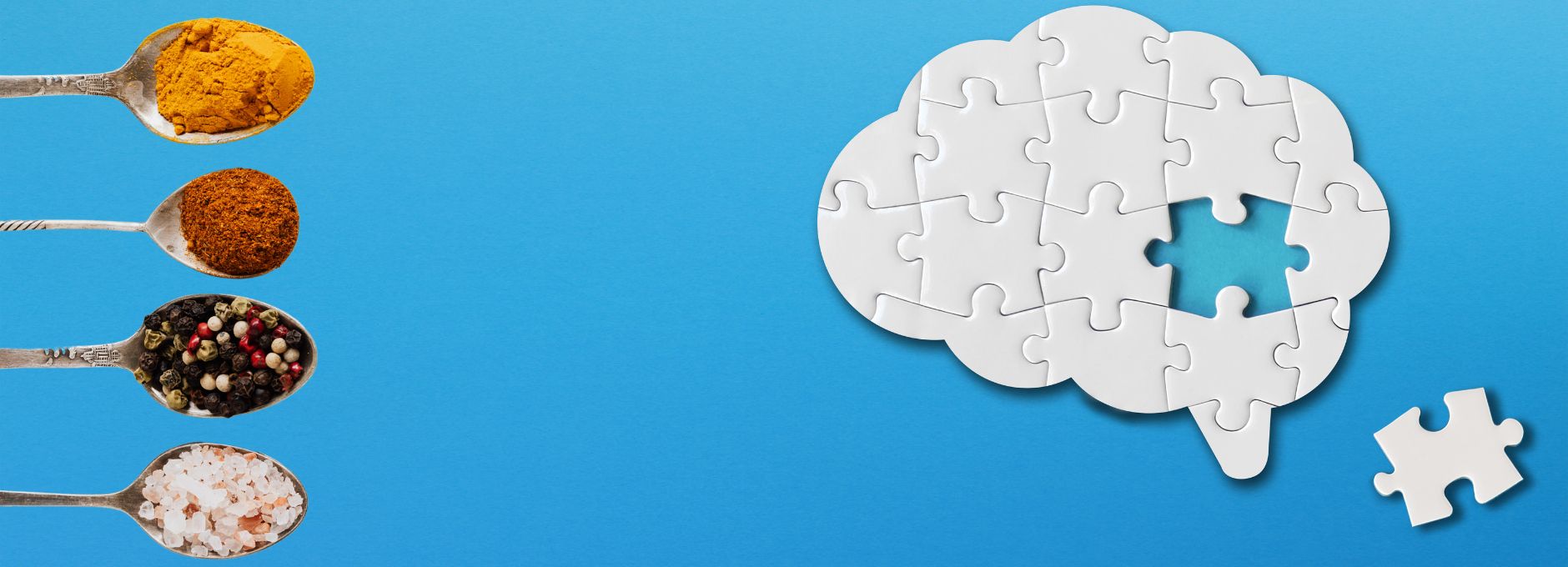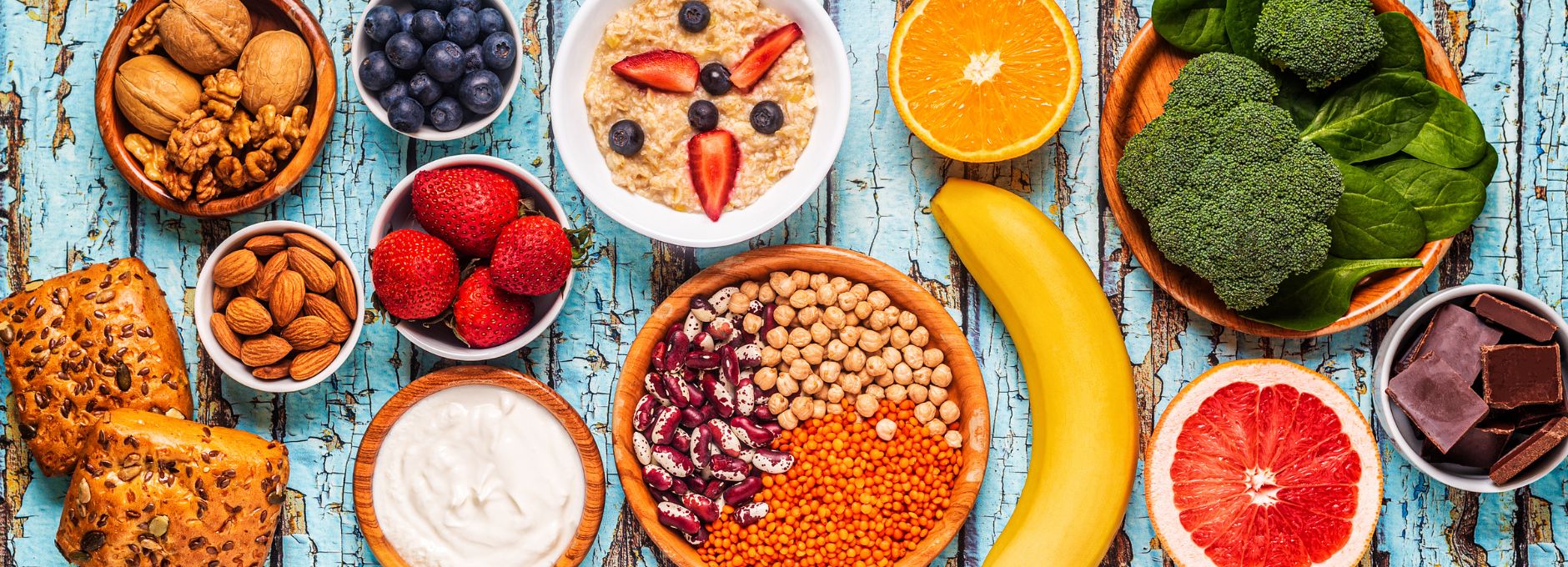Discovering the Link Between Nutrition and Mental Health

Eat Better
Discovering the Link Between Nutrition and Mental Health
One in four people in Britain will experience some kind of issue with their mental health this year. One in six report regular problems, be it with depression, anxiety or some other kind of diagnosed psychological disorder. While one in every eight people in the UK are currently receiving some form of treatment for the mental health issues they live with every day.1
Thankfully, in recent years the world has shone a light on such things and there’s less stigma surrounding them. It’s been important progress, given that the World Health Organisation claims that depression could be one of humanity’s biggest health concerns by the year 2030.2
It’s no wonder that health professionals are exploring every possible avenue in a bid to be able to treat, ease and even prevent issues with the world’s emotional wellbeing.
One such field of study is known as ‘nutritional psychiatry’. It’s an emerging area of scientific research which concerns itself with how our diet affects not only our general mood, but how diet and mental health may be more closely linked than we once thought.
Essentially, researchers are delving into the connections between what we eat and how we feel. Here’s what we know so far…

Diet and Mental Health – You are What You Eat
The old phrase ‘you are what you eat’ is so well-used now that it’s become clichéd. Yet at its core, it still holds wisdom: To be healthy, you really do need to eat a balanced diet of good foods.
That health isn’t just physical, though. Good nutrition can contribute towards clearer thought and an all-round better mood.3
Blood sugar levels play a part, so too do hormones. A poor diet lacking in nutrients and vitamins will likely leave you feeling fatigued and, research increasingly suggests, more liable to suffer with issues connected to your mental health.

Nutrition and Mental Health Issues – Can there be a treatment?
So it seems very likely that there is a real connection between our diets and our mental health. A theoretical link is all well and good, but what we all really want to know is if there’s an application for that connection.
Can some form of dietary intervention actually help treat or even cure people of their anxiety or depression? The science isn’t rock solid as yet, but it looks promising.
Of course, no one has suggested that food would be a cure in and of itself, but taken as part of a holistic approach to treatment, nutrition seems to have a part to play.
One of the most comprehensive clinical trials that’s been carried out to examine if links between diet and mental health can generate treatments for things like depression is ‘The SMILES Trial’. The three month study took around 70 people with depression and monitored their behaviour and reaction to a series of dietary changes. They were effectively introducing a healthy Mediterranean-style diet, rich in fish, vegetables, nuts and fruits. With a moderate amount of cheeses, butter and red meats.
After the conclusion of the study, those on the diet reported notable improvements in their depression symptoms.4

Diet and Mental Health – Can certain diets actually prevent depression or anxiety?
The idea that we can improve our mental health with our diet is an interesting and encouraging one. The link could well go beyond that, though. Plenty of researchers in nutritional psychiatry are convinced that our diet can not only help treat such issues, but actively prevent a good deal of them too.
Western diets have been shown to increase the risk of developing depression. Eating lots of butter, potatoes, dairy, saturated fats and added sugars – while avoiding the required amount of fruits and vegetables – appear to put us at particular risk of anxiety and depression.5 This is especially true in those of us over 50 years of age.6
That same study indicated that a diet high in grains, vegetables, fruits, olive oil, fish and antioxidants is associated with a lower risk of developing mental health issues.7
This research is only really indicative, though. While there appears to be a connection between certain diets and mental health, cause and effect can often be quite tricky to prove without a doubt. Still, the results make for thought-provoking reading.

The Best Foods and Vitamins for a ‘Healthy Mental Diet’
What kinds of foods, precisely, are needed for a mood-healthy diet? Here are some of the major food groups and vitamins that we all need to introduce and maintain in our diets:
- Lean proteins: Red meat, chicken, fish, eggs, nuts and seeds.
- Complex carbs: Brown rice, vegetables. Quinoa and sweet potatoes.
- Fatty acids: Fish, red meat, eggs, nuts and seeds.
- Iron: Red meat, fish, poultry, beans, grains, cereals and pulses.
- B vitamins: Red meat, fish, eggs, dairy and cereals.
- Folate: It’s been proven that people that don’t get enough folate are often at an increased risk of feeling depressed.8 You can find it in vegetables, citrus fruits, beans and liver.
- Selenium: Research indicates that a selenium deficiency could increase our chances of feeling depressed.9 We can get selenium from foods such as meat, fish, nuts, seeds and wholemeal bread.
It seems as though the link between mental health and the food we eat is real. Certain diets can affect our mood and exacerbate or reduce symptoms of depression.
It’s a complex area and one that needs reliable science backing it up. The early signs look promising, though, and it seems likely that good nutrition can help our mental health.
Whatever the connection, this is just part of the wider picture. Anyone concerned about their mental health is always encouraged to speak to a professional for helpful and judgement-free advice and to discuss potential treatment options.